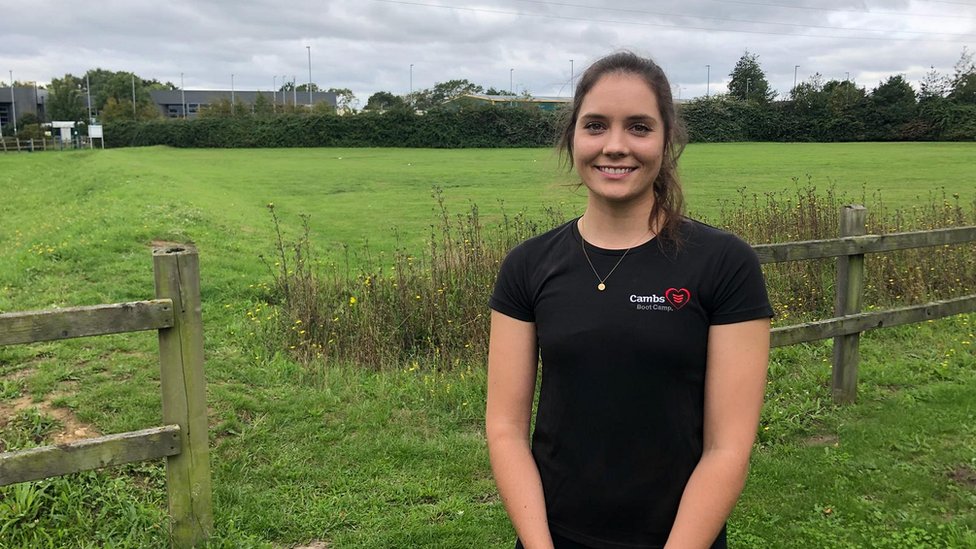
By Laurence Cawley and Phil Shepka
BBC News
From Monday social gatherings of more than six people – with some exceptions – will become illegal, in a bid to stem the growing number of coronavirus cases. With its numerous parks and open spaces, the university city of Cambridge knows a thing or two about gatherings. So the BBC headed there to see how the new rules were going down.
“I wish I’d waited to send out the invites – I’m not really sure what we’ll do at the minute,” says research assistant Philippa Barton.
The scientist, who has just completed a PhD at Cambridge University, is 29 today and had planned to celebrate her birthday in a little over a week’s time.
She had planned to hold a garden party for eight people at a friend’s house.
“So that can’t happen any more,” she says. “I mean it is a bit awkward now that I’ve already sent out the invites because you can’t just scrap two people off the list – I think that would be really awful.
“I’m not really sure what we’ll do at the minute. I might have to do two smaller things on separate weekends.”
What are the new rules?
- The law change will ban larger groups meeting anywhere socially indoors or outdoors
- It will not apply to schools, workplaces or Covid-secure weddings, funerals and organised team sports
- It will be enforceable through a £100 fine if people fail to comply, doubling on each offence up to a maximum of £3,200
- The new rules – which come into force on 14 September – mark a change to England’s current guidance
Source: BBC
Hannah Batchelor runs both the Stardust Dance Academy, in the Orchard Park area of the city, and a children’s party business. Both sides of her business, she believes, will be affected. She fears the party side will grind to a total halt.
“I think mainly it will affect class numbers,” she says. “I think it is going to affect parents’ confidence in sending children to after-school and extra-curricular activities. I think it is going to have a negative impact on my dance school.
“I also think it is going to definitely going to have a negative impact on my party business as with the new guidelines I can’t really run children’s parties.
“It would make such parties effectively illegal gatherings and I don’t think that’s something parents are going to want.
“That part of my business I won’t be able to run for the foreseeable future.”
Just out of the city, on the Cambridge Science Park in Milton, James Hirst is about to start an outdoor fitness class.
His sessions, he says, only started back up in the middle of July, in line with the government’s guidelines.
As an outdoor fitness business, he can accommodate up to 30 people each session and so he will not fall foul of the new restrictions.
“Obviously, we have to stay within the guidelines for social distancing and we are running within the Football Association’s rules on outdoor training,” he says.
“We have four sites around Cambridge and we have about 18 to 20 sessions a week. They are being really well attended; we’ve had new people joining up.
“The other side of our work, the corporate work side, has really died down. There’s only one that I’m training with in town, whereas it used to be four or five a week.”
He says he is not concerned about the new rules “at the moment” because of the outdoor sports exemption.
“And it is not affecting business, and it is not affecting sports, so as things stand we’re quite happy that this won’t affect us.
“But for us it is just so important that we keep hold of the social-distancing guidelines because, while it is OK to have 30 people out, we have to be so careful that they are always more than 2m (about 6ft) apart.
“So while nothing is really changing from before, I think we need to redouble our efforts to keep everything Covid-safe.”
Find BBC News: East of England on Facebook, Instagram and Twitter. If you have a story suggestion email eastofenglandnews@bbc.co.uk